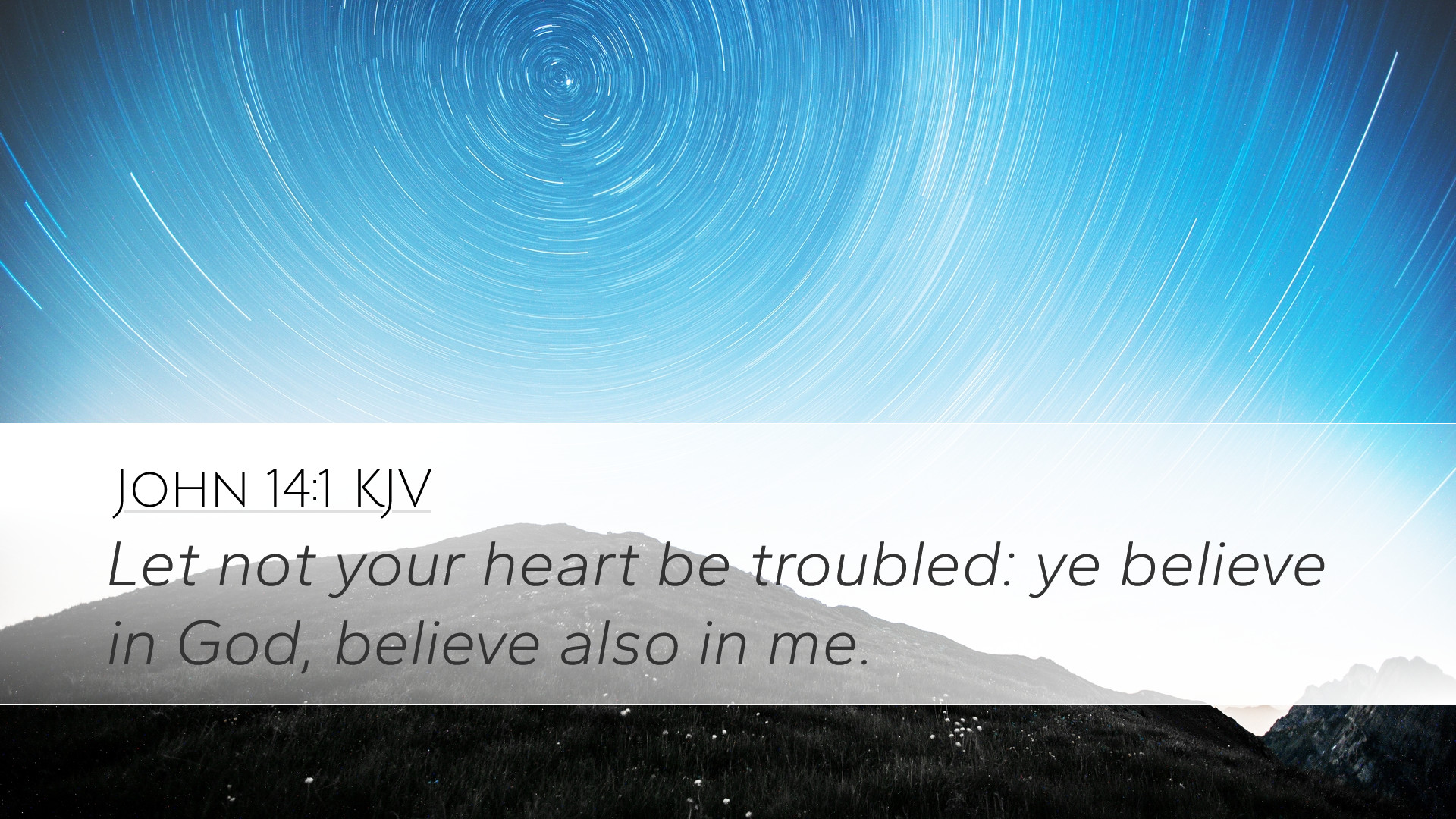Commentary on John 14:1
Verse Context: John 14:1 states, "Let not your heart be troubled: ye believe in God, believe also in me." This verse occurs in the broader discourse of Jesus' Farewell Address to His disciples, providing profound theological insights and comfort during a time of impending sorrow as they face His departure.
Introduction to the Commentary
This verse encapsulates a key theme in the Gospel of John: the intimate relationship between the believer and the divine. As we delve into this passage, we draw insights from esteemed public domain commentaries, namely those by Matthew Henry, Albert Barnes, and Adam Clarke, to uncover layers of meaning and application pertinent to pastors, students, theologians, and Bible scholars.
Exegesis of John 14:1
This verse can be understood through a careful examination of its components:
-
"Let not your heart be troubled":
Jesus begins with a command that reflects both compassion and authority. Matthew Henry notes that this command indicates the natural tendency of the human heart towards anxiety and fear, especially in the face of uncertainty or distress.
-
"ye believe in God":
This phrase underlines the essential faith in God that the disciples already possess. Albert Barnes observes that the faith in God serves as the foundation upon which the disciples can believe also in Christ, indicating the unity of faith in the Father and the Son.
-
"believe also in me":
Here, Jesus draws a direct parallel between belief in God and belief in Himself, affirming His divine authority. Adam Clarke emphasizes that this invitation is not merely for belief but also an encouragement to trust in the promise of a future hope offered through Christ.
Theological Insights
Within this single verse, we uncover several theological themes:
-
The Nature of Discipleship:
Henry poignantly explains that true discipleship involves not just following Christ but also placing unwavering trust in Him even when circumstances are dire.
-
The Assurance of Faith:
Barnes highlights that Jesus addresses the disciples’ fears directly, showing that their faith is not naive but is rooted in a relational knowing of God, thus fostering a sense of peace amidst turmoil.
-
Christ's Divine Identity:
Addressing the divinity of Christ, Clarke comments on the significance of Jesus equating belief in Him to belief in God, which reinforces the Christian doctrine of the Trinity and the oneness of Christ with the Father.
Practical Application
This verse offers rich resources for application today:
-
Addressing Anxiety:
In a world filled with uncertainties and distress, the call to not let one’s heart be troubled is a reminder for Christians to turn their anxieties into prayers, casting their cares upon Him (as echoed in 1 Peter 5:7).
-
Encouragement in Discipleship:
Pastors can use this verse to encourage congregants that belief in Christ is integral to navigating life's trials. It reassures that faith is a path to peace, rather than a shield from struggles.
-
Strengthening God-relationship:
The call to believe in Christ as we believe in God invites deeper engagement with both the Word and prayer, fostering spiritual growth and maturity among believers.
Conclusion
John 14:1 stands as a profound declaration of peace and faith amidst turbulence. As believers, we are assured that trust in Christ is both grounding and liberating. The commentaries of Matthew Henry, Albert Barnes, and Adam Clarke serve to enrich our understanding, aiding pastors and scholars in conveying the depth of this message to their audiences. Therefore, in reflecting upon this verse, may we all be encouraged to cultivate an unwavering faith that comforts and strengthens, mirroring the very heart of Christ.


